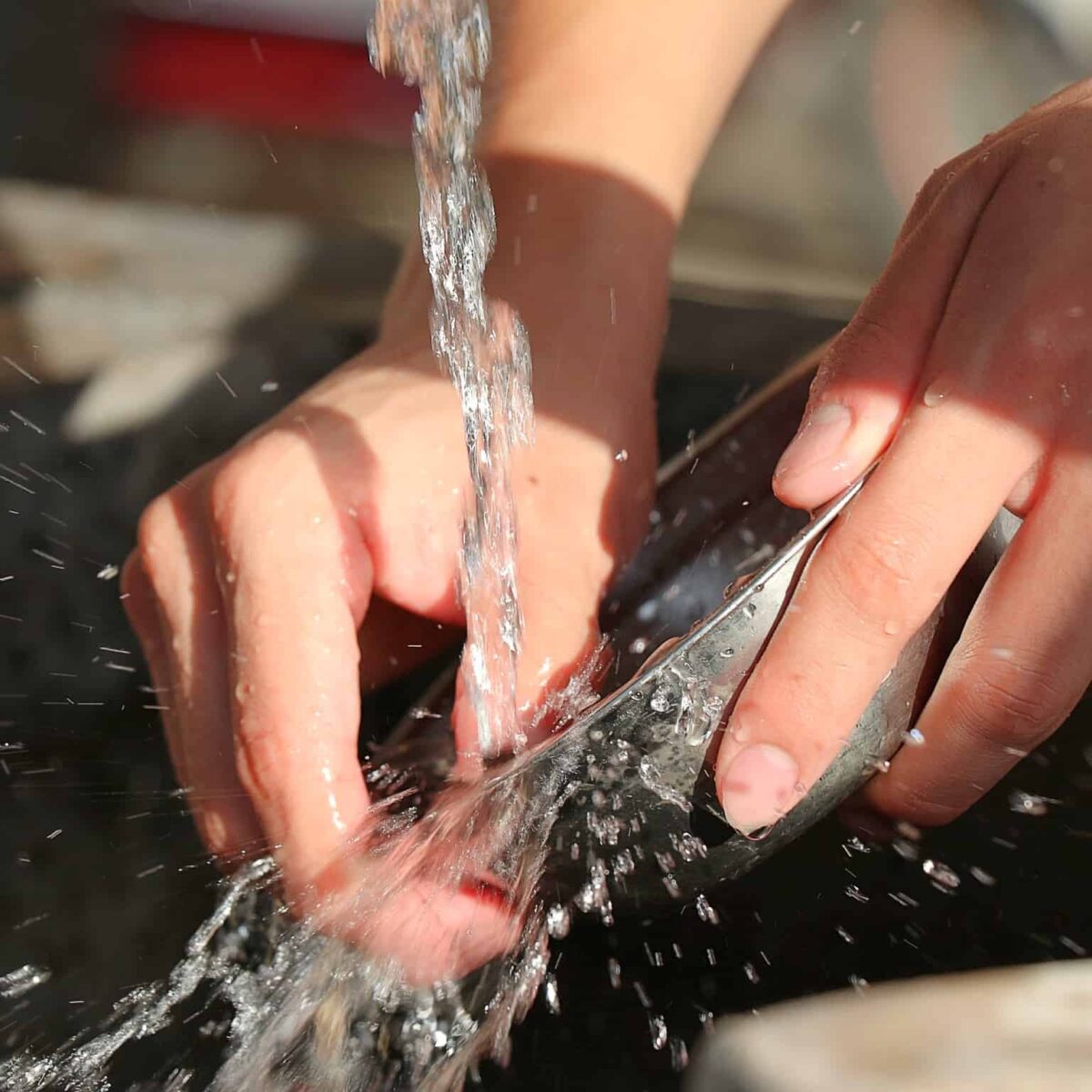We often hear about water conservation and the importance of using less water in this day and age.

Especially for homesteaders or anyone living in a place where water is scarce and precious, the pressure is really on to get as much “mileage” from your water as possible.
A method that is commonly recommended to this end is the reuse of gray water. But what exactly is gray water?
Gray water is simply household wastewater that is not contaminated by urine or fecal matter. This can include water from baths, showers, hand washing, laundry, and dishwashing.
Basically, any water that doesn’t come into contact with human waste can be considered gray water, and it is possible to reuse this water for other chores both in and out of the house for a variety of purposes.
With some smart engineering and an eye toward sustainability, you can separate and even store gray water in day-to-day use so you don’t have to waste your fresh, potable water on lesser tasks. If that sounds interesting, keep reading: we will tell you more in this article.
Gray Water is Wastewater, but Not the Worst Wastewater
The first thing to understand about gray water is that collected properly, it doesn’t contain human waste.
So long as the wastewater from your sinks, dishwasher, tubs, and other such drains is not allowed to reach the main sewer or septic pipe in your home, it won’t have any opportunity to come into contact with poop or pee.
Wastewater that is contaminated with either, in any quantity, is known as black water and is not something you want to be messing with for any other purpose without heavy treatment. That’s a topic beyond the confines of this article.
Gray water, on the other hand, is generally safe to handle (or at least much safer) and can be used for non-potable purposes so long as it isn’t for human consumption and won’t come into contact with food. More on those purposes in just a minute.
Gray Water Can Still Contain Lots of Germs and Bad Stuff
Don’t misunderstand: gray water is still contaminated with all kinds of stuff.
For instance, water from laundry will have soap or other cleaning agents in it, while water from the kitchen will certainly contain food particles, grease, mold, and the like. Anything that goes down these drains will be in the water!
As a result, gray water should not be used for drinking or cooking purposes, and you should be careful about contact with gray water if you have any open cuts or wounds.
In general, it is best to be cautious and assume that all gray water is contaminated with germs to some degree. Avoid contact with your eyes, mouth, or any open wounds.
6 Uses for Gray Water
While the idea of using gray water may sound a bit icky at first, it actually makes perfect sense.
After all, this water is not contaminated in any significant way and can be perfectly safe to use for all kinds of things.
It isn’t…
